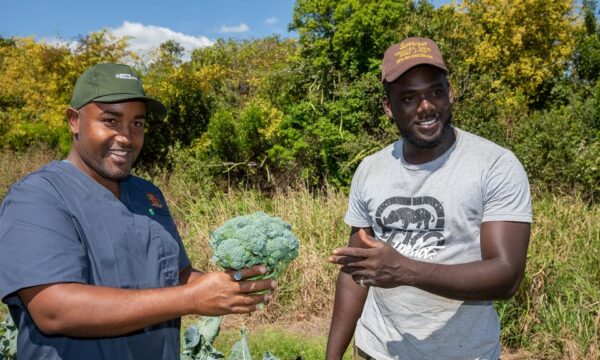This week, the UK Minister of State for Agriculture and Food, David Heath, has announced his support for the use of agroecological farming methods which are seen as the foundation of sustainable agriculture. The International Assessment of Agricultural Knowledge, Science and Technology (IAASTD) define agroecology as “the science and practice of applying ecological concepts and principles to the study, design and management of sustainable agroecosystems”. In practice, this means simulating natural ecosystems and using low inputs to increase productivity.
In 2011 the UN reported that by using agroecological methods, projects carried out in 20 different African countries were able to double crop yields in 3-10 years. The projects also recorded a reduction in the use of pesticides, leading to savings for the farmers. The agroecological approach has multiple benefits, beyond these economic gains. It also takes into account social and environmental issues, including soil fertility, water availability and climate change.
One application of acroecology is permaculture (permanent culture), which is used in a number of global projects. Permaculture aims to get the greatest productivity from organic, low-input, biodiverse farms. The diverse mix of crops allows a year-round harvest, so that no “hungry season” is experienced. This also improves the amount and range of nutrients the farmers can produce using their resources. Furthermore, these resources can often be recycled to gain the maximum outputs per unit input.
The method is knowledge-intensive and difficult to adopt as it requires indigenous farming knowledge and the design is normally specific to the farmer’s available resources and desired outcomes, rather than being an easily replicated model.
Due to its small-scale, low input nature, the permaculture projects are not highly visible and do not prompt commercial interest from companies who may put money into research. There has therefore been very few studies into its effectiveness, and so scepticism remains, with people seeing the method as idealistic.
However, there are plenty of projects around the world who are using and benefiting from this approach. Oxfam has set up a permaculture school in Indonesia to teach locals the concepts of sustainable agriculture, and how to make it work for them. The course is in high demand, with people coming from all over and taking their new knowledge back to their villages.
References
1 Comment
Leave a Reply
Related News & Blogs
The role of soil health in sustainable agriculture
Previously, we have discussed the importance of soil health for agriculture, highlighting its threats and outlining protection strategies. In this blog, we dig deeper into the role of soil health in sustainable agriculture and explore its long-term ben…
18 June 2025






[…] Political: UK government supports agroecology. […]